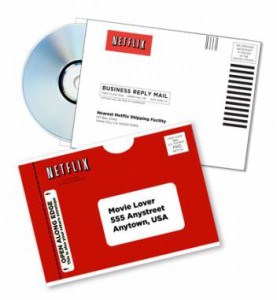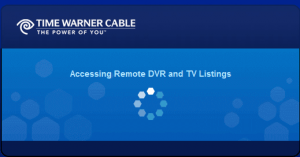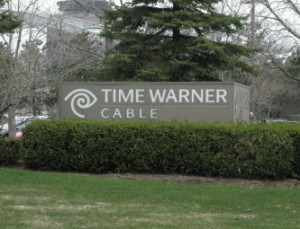 GCI, an Alaskan Internet Service Provider, is getting pummeled by angry customers as they continue to learn the company has launched an Internet Overcharging scheme that limits their broadband use. Some customer claim the company is actively trying to trick those previously enrolled in unlimited plans into limited service tiers with tantalizing “free speed upgrades.”
GCI, an Alaskan Internet Service Provider, is getting pummeled by angry customers as they continue to learn the company has launched an Internet Overcharging scheme that limits their broadband use. Some customer claim the company is actively trying to trick those previously enrolled in unlimited plans into limited service tiers with tantalizing “free speed upgrades.”
Stop the Cap! reader Thomas was one of more than a dozen readers who complained to the Anchorage Daily News about the broadband ripoff.
He is outraged by the bait and switch tactics employed by GCI that sold customers on expensive bundled service packages that promised “unlimited Internet” service the company is now trying to take away.
Thomas first learned GCI had slapped limits on his broadband account… from Stop the Cap! GCI never bothered to inform him, or many other customers, about the new usage limits. After he read our earlier story, he called GCI and learned he was a victim of Internet Overcharging.
GCI’s limits range from 40-100GB on plans ranging in price from $45-105 per month.
GCI, like most Internet Overchargers, tries to blame its customers for the imposed limits.
GCI estimates that 5 percent of its Internet customers are consuming 70 percent of the company’s available bandwidth. These users share a portion of their Internet cable with other GCI customers, and they have been slowing down the other households’ Internet speed, GCI spokesman David Morris told the Anchorage newspaper.
In an effort to prove their contention that usage limits improve service, GCI handed out free speed upgrades along with usage allowances and attempted to conflate the two.
 In reality, most broadband slowdowns come from overselling access and being unwilling to invest in appropriate capacity upgrades to meet the growing needs of customers. For companies like GCI, imposing usage limits to scare users away from high bandwidth services is cheaper and more profitable than meeting customer demand.
In reality, most broadband slowdowns come from overselling access and being unwilling to invest in appropriate capacity upgrades to meet the growing needs of customers. For companies like GCI, imposing usage limits to scare users away from high bandwidth services is cheaper and more profitable than meeting customer demand.
“Most of the under-30 crowd that I know use Netflix and Hulu streaming services so we can watch what we want, when we want. Cable TV does not give us the flexibility we want,” Sean Hogan, an Anchorage accountant, told the newspaper.
“I’m getting charged $180 per month and I don’t even want the phone or cable,” said Mike White, an Anchorage customer who upgraded his data-usage plan recently because he was worried about violating GCI’s limits.
GCI claims its new limits allow customers to do many things they had no interest in doing under their old unlimited plans, like sending millions of e-mail messages or browsing tens of thousands of web pages. To make the limits sound generous, they made a chart:
Usage Comparison
|
Example |
5,000 MB |
20,000 MB |
40,000 MB |
100,000 MB |
Email
(4 KB) |
Text Only |
1.25 Million |
5 Million |
10 Million |
25 Million |
| Email with Picture (1 MB) |
Average
quality photo |
5,000 |
20,000 |
40,000 |
100,000 |
Webpages
(100 KB) |
Facebook,
eBay |
50,000 pages |
200,000 pages |
400,000 pages |
1 Million pages |
Music Downloads
(4 MB) |
3 minute
song |
1,250 songs |
5,000 songs |
10,000 songs |
25,000 songs |
Streaming Audio
(1 MB/min) |
Pandora
Internet Radio |
80 hours |
320 hours |
640 hours |
1,600 hours |
Streaming Video
(2 MB/min) |
YouTube |
40 hours |
160 hours |
320 hours |
800 hours |
Movie
Downloads |
Standard Definition |
7.5 movies |
30 movies |
60 movies |
148 movies |
Of course, these limits ignore the reality customers do most or all of these things, and if they use their high speed connection to download files or watch the increasing amount of video content delivered in High Definition, they’ll blow through some of GCI’s limits with little effort.
Despite GCI’s claims of generosity, its customers think otherwise, and many are moving to curb their usage to avoid potential penalty fees or service termination the company could impose with enforcement of their caps:
Morris said that most of GCI’s customers will discover that their Internet usage is far below the new limits. Depending on the plan, the limits range between 50 and 125 gigabytes per month.
Chris Bruns, an Anchorage father and college student, isn’t so sure. “I’m in the high-30 (gigabyte) range every month,” he said.
GCI’s cheapest substitute for an unlimited plan is 40 gigabytes — the equivalent of downloading and watching 60 movies per month on your computer.
Bruns found out recently — after calling GCI to ask some questions about his family’s Internet speed and usage — that his previously unlimited plan, called Ultimate Xtreme, now had a 40 gigabyte ceiling.
“I was pretty miffed. It came as a surprise,” he said.
“When we signed up, we specifically got the unlimited plan because we knew we used it a lot,” he said.
He said he has since curbed the family’s Internet usage to be on the safe side. He said he and his wife regularly download movies for themselves and cartoons for their two children on Netflix to watch on their computer. Using Netflix is a way to keep the kids from seeing “garbage” on TV, Bruns said.
Ed Sniffen, a consumer-protection attorney in the Alaska Department of Law, may a victim of GCI’s bait and switch broadband himself.
Sniffen said he has had an unlimited-data plan with GCI and didn’t know on Tuesday afternoon whether he received a notice about the new policy. He said anyone who has a concern should contact the Law Department’s consumer-protection office.
The story in the newspaper prompted an enormous response — some 265 comments and counting. A sampler:
GCI provides terrible service compared to companies in the lower 48 at exorbitant prices. They are a monopoly that needs to be tweaked.
GCI’s Network costs are FIXED. They are raping and pillaging us.
“GCI said it hasn’t yet charged anyone fees for exceeding the data limits…” — GCI lies. Just a few months ago I was charged nearly $100 for exceeding the bandwidth limit. Since then, I’ve upgraded my package to a ridiculous amount of bandwidth (at a ridiculous price) just so I can avoid that problem.
This is crazy. You go anywhere in the lower 48 and almost every Internet provider out there has some sort of unlimited plan, and it doesn’t involve payment with an arm, a leg, a kidney, or a first-born child. GCI needs to get this crap sorted out.
I got an offer to double my Internet speed and usage for a few bucks extra, and free cable (the good package, not the basic cable). Two months later, I still haven’t seen anyone show up to do anything, and I’m still getting charged out the tail end for overage charges. I keep requesting to up my Internet (I have a college student who takes some Internet classes) but they never do it. The only reasons I switched from ACS were because when it rained we had no phone OR internet (they said the problem was with our lines – our landlord at the time needed to fix it, but the contractor said it was ACS’s line problem – THEY needed to fix it.) If there was another alternative to phone/Internet, I would so be there.
I was out and out LIED to by a GCI Rep. I was told if I changed my plan I would receive higher speeds with NO OTHER CHANGE for the same price. I questioned the GCI rep about this in detail several times before agreeing. The next day I no longer had unlimited downloads. I was LIED to and RIPPED OFF by GCI.
GCI’s statement that they have not charged overlimit charges is incorrect as over ten individuals that I know including myself have been hit with bills ranging from $300 to $2000 for one month of service.


 Subscribe
Subscribe






